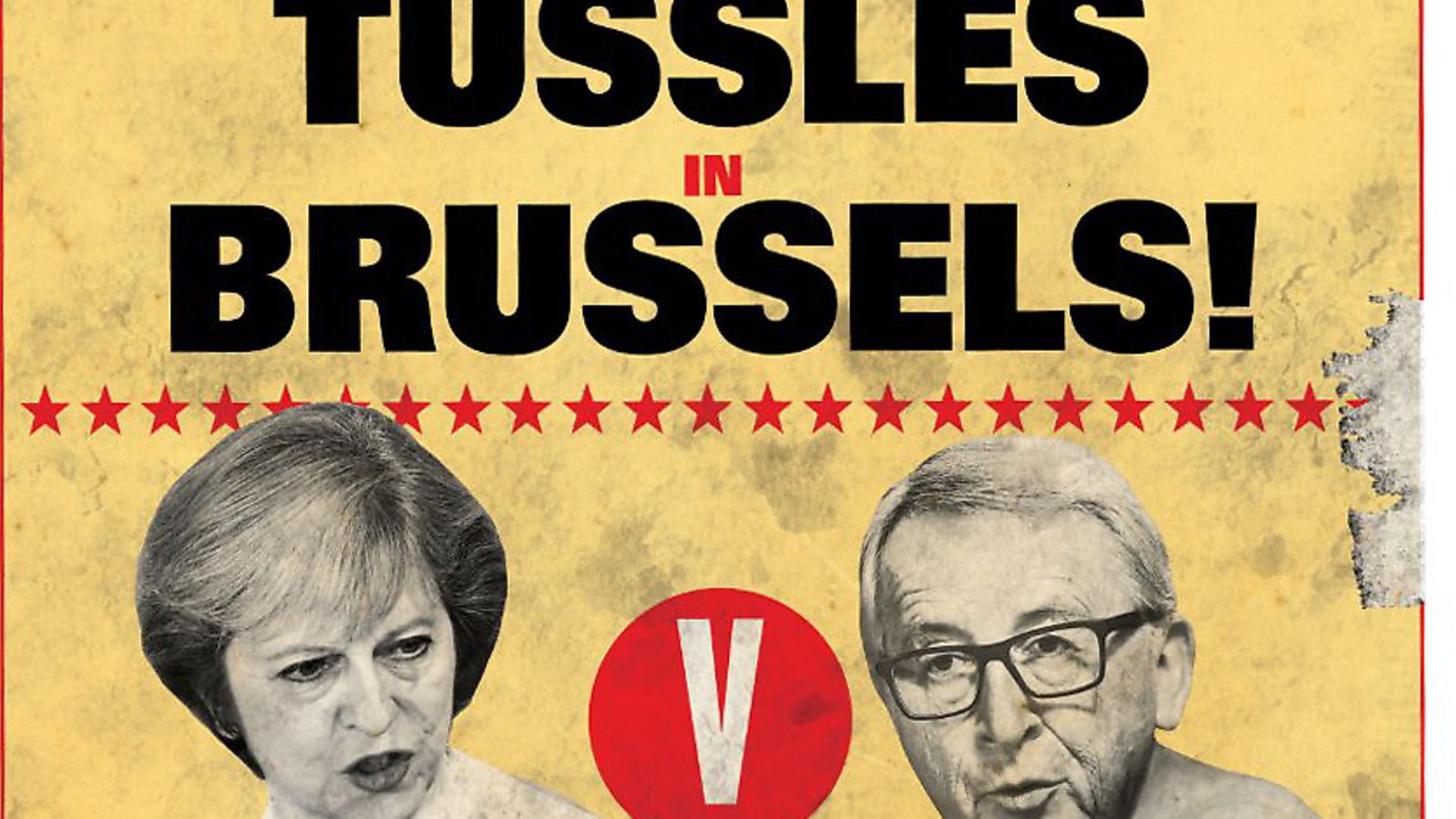
Leaked documents have revealed Brussels will demand Britain pays the cost of moving EU agencies out of the UK after Brexit.
And the European Commission will insist that the UK stumps up its ‘divorce bill’ in euros, ensuring that Britain bears the risk of any currency fluctuations.
The tough negotiating guidelines, obtained by the Politico.eu website, set out tight protections for EU citizens and budgets, as well as European businesses whose goods are traded in the UK.
And they insist that the European Court of Justice must maintain legal jurisdiction over disputes relating to the enforcement of the withdrawal agreement.
But it is the provisions on the ‘divorce bill’ which are likely to come under the spotlight when Theresa May holds talks in London on April 26 with European Commission Brexit negotiator Michel Barnier and president Jean-Claude Juncker.
Their meeting comes ahead of an April 29 summit in Brussels when the remaining 27 members will finalise their negotiating stance.
The draft paper states that the UK must ‘honour its share of the financing of all the obligations undertaken while it was a member of the Union’, including ‘liabilities, contingent liabilities, legal and budgetary commitments’.
And it says: ‘In addition, the United Kingdom should fully cover the specific costs related to the withdrawal process such as the relocation of the agencies or other Union bodies.’
Brexit is likely to mean the UK losing the European Medicines Agency (EMA) and European Banking Authority (EBA), which are currently based in London’s Canary Wharf and between them employ around 1,000 people in Britain.
The European Council has made clear it wants them transferred to one of the 27 remaining member states, though David Davis’s Department for Exiting the EU insisted earlier this week that their future was still subject to negotiations.
Juncker has previously suggested the UK’s divorce bill may come to around £50 billion.
The new negotiating guidelines indicate that Britain will be able to pay it over a number of years, but insisted that the scheduling of payments ‘should be agreed in order to limit the impact of the withdrawal on the budget for the Union’.
Even after a settlement is reached on a final figure, the total may be subject to future ‘annual technical adjustments’.
The document emerged as May held talks at 10 Downing Street with the president of the European Parliament , Antonio Tajani.
MEPs will have a vote on any deal struck by May at the end of the two-year process of negotiations under Article 50, giving the Parliament an effective veto.
Leaving Downing Street after talks lasting 45 minutes, Tajani said he and May were agreed on the need for a resolution to the issue of UK and EU ex-pats’ rights.
‘This is the most important message – we want to work together,’ he said. ‘It is a good start, a good beginning, now we need to go for implementation.’
The Prime Minister’s official spokesman said: ‘The PM and the president agreed the UK and EU should continue to have a close relationship after Brexit and on the importance of giving early certainty about the status of British citizens living elsewhere in the EU and citizens of other member states in the UK.’
Warning: Illegal string offset 'link_id' in /mnt/storage/stage/www/wp-includes/bookmark.php on line 357
Notice: Trying to get property 'link_id' of non-object in /mnt/storage/stage/www/wp-includes/bookmark.php on line 37






